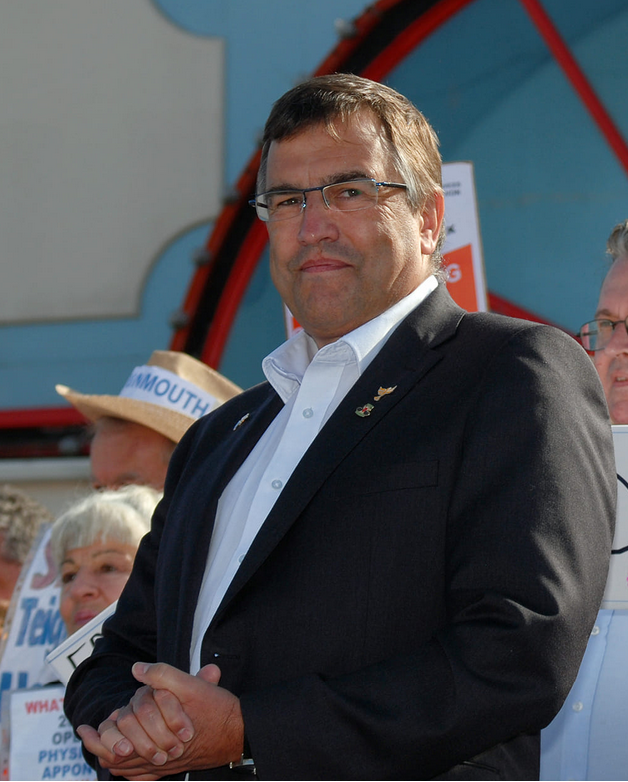Dawlish MP, Devon County Councillor, Teignbridge District Councillor and Businessman Martin Wrigley explains why he held on to so many jobs on the very pro Liberal Democrat People's Republic of South Devon website;

From the PRSD Website
Lib Dems | MP Martin Wrigley responds to finger pointing
https://www.theprsd.co.uk/2025/03/28/lib-dems-mp-martin-wrigley-responds-to-finger-pointing/
Wrigley: "When I was elected as the MP, I was a sitting councillor for Dawlish Town, Teignbridge District and Devon County."
Q 1, So why didn't Wrigley resign at the time?
Wrigley "Each council asked me not to resign from my seat immediately. Partly as a means of having a period of transition, and partly down to the number of by-elections that would have potentially cost the taxpayer some £50,000 to run.
In addition, towards the end of a council term, there is no by-election if there is less than six months to run, or close to that."
Q 2. Did each Council ask Wrigley to not to resign? Having contacted all the Councils, Dawlish Town Council and Teignbridge District Council responded by informing me that thse Councils did not ask Wrigley to resign. I asked for minutes of meetings where this request was made and names of Councillors and Council Officers who made such a request. There were no minutes, nobody made this request of Wrigley. To do so would be ultra vires, which means 'without authority', no Council has the jurisdiction to make such a request. It would be against democratic process.
Q 3. Where did he get the £50,000 cost to the taxpayer from? The Councils have a contingency fund for by-elections.
And in any case in the case of Dawlish the last two by Counciilor vacancies have been filled by co-option. Why should anyone think Wrigley's Town Council position, which he vacated in February would have lead to a 'costly by-election' It didn't. His replacement Independent Councillor Georgia Brown also joined the Council by co-option as less than 10 Parishoner wrote to call for a by election.
Why would his resignation from the District and County Councils also lead to a 'costly by-election'? The precedent in Dawlish is for co-option, most likely because the electorate isn't particularly interested in local politics.
The whole 'avoiding significant costs to the taxpayer' is the standard excuse the Liberal Democrats are using up and down the Country. It might be convincing if a MP had one Councillor role, but 3?
Wrigley "I have now stood down from my Town council seat."
Q 4 Was Wrigley's resignation anything to do with complaints made to other Councillors about his multi-jobbing 10 days before he decided to leave the Council? And his piss poor attendance? Did he quit to avoid scrutiny and or bad publicity?
Wrigley then goes on to comment on his resignation from Dawlish Town Council in early February;
Wrigley "No election was triggered as less than ten people wrote in to ask for one. That demonstrates that there isn’t a clamour for an election, so that role will be filled by co-option."
Q 5. So doesn't what he writes above undermine Wrigley's own claims of staying in his roles to save the taxpayer £50,000?
Wrigley then attempts to expain why he isn't giving up his District Councillor position...
Wrigley "I am not standing for the County on 1 May, but have yet to stand down from my Teignbridge seat, partly because of some issues that I wish to see sorted out, but also to keep a foot in both camps during the uncertain months of pending re-organisation."
Q 6. So when is he standing down from the District Council?
Q 7. Wouldn't resigning from the District Council in the last month or so have enabled a District by-election to have been held alongside County Council elections on May 1st, which would have saved the taxpayer a considerable amount.
Wrigley writes he is ...."yet to stand down from my Teignbridge seat, partly because of some issues that I wish to see sorted out."
Q 8. Because of 'some issues' he 'wants to see sorted out'. What the hell does that mean? Pretty vague isn't it. Doesn't the electorate deserve better?
Q 9. Did Wrigley quit the Town Council because it is a voluntary position, whereas the County and District Councils pay sizeable allowances?
Wrigley ends his piece which is supposedly designed to stop critics of his and the Liberal Democrats from 'pointing the finger'. It fails dismally.
Wrigley "Many of the residents’ issues that have come to me as a Councillor and MP, are more easily sorted out using the influence and office of being the MP and the connections of being a councillor."
Q 10. Do you think Wrigley is correct that the roles of Councillor and MP can be combined?
Q 11. Doesn't that present many conflicts of interest and issues around accountability.
Q 12, Wouldn't he still have his connections if he had resigned from all Council positions?
Q 13. Does Wrigley's argument hold any water or is he full of it?
Q 14 What do you think of the liberal democrats and their local leader? Would you vote for this rabble?
 Please
Please 